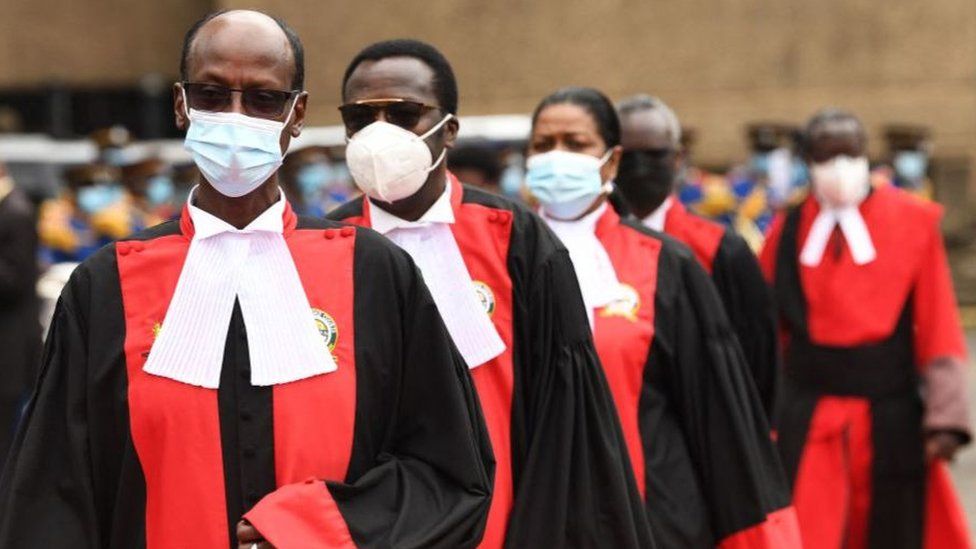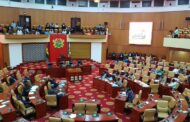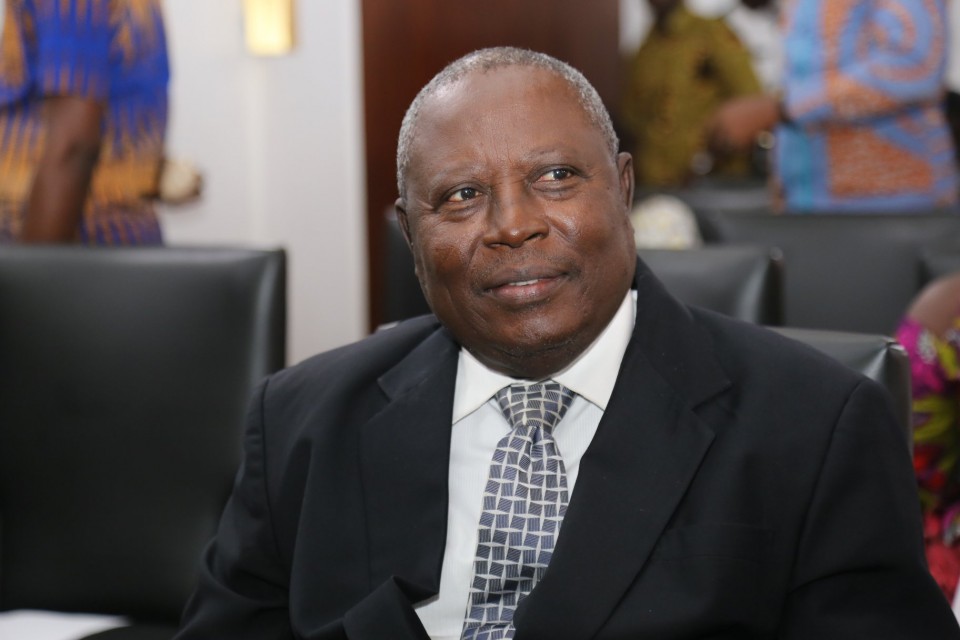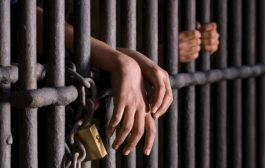In a huge blow to President Uhuru Kenyatta, Kenya’s judges have once again blocked a government-backed plan to make fundamental changes to the constitution.
Supreme Court judges said the president had acted unlawfully when spearheading the reforms, known as the Building Bridges Initiative (BBI).
They said it should have been led by citizens – not a sitting head of state.
The defeat comes ahead of crucial elections in August.
Mr Kenyatta has already served two terms as president so will not stand in those polls, but had staked his legacy on passing this bill, which he argued would make politics more inclusive.
Among its key proposals was the introduction of a new post of prime minister. There had been speculation that Mr Kenyatta could seek this role should his rival-turned-ally Raila Odinga win the presidency.
His previous bid in 2017 saw him narrowly lose to President Kenyatta, amid allegations of fraud and fears of renewed political violence.
A year later, however, the pair agreed a deal, which is the basis of the BBI reforms, while President Kenyatta and his deputy William Ruto have fallen out.
He and Mr Odinga are expected to be the two front-runners in this year’s presidential race.
“The whole of this scheme looked to me like it was choreographed to try and force me to get out of government,” Mr Ruto told the BBC earlier this month. “The so-called ‘Building Bridges’ built no bridge.”
Mr Odinga says he is not deterred by the Supreme Court decision and will “protect the interests” of those who backed the reforms.
While many analysts will see Thursday’s ruling as a win for Mr Ruto, the real winners are ordinary Kenyans who have fought throughout from the lower courts to the Supreme Court to defend the country’s constitution from being amended by elites without public participation.
The BBI reforms were touted as a means of rallying the country together but Kenya now finds itself with a deputy leader who opposed the government’s key reform and an opposition leader who championed it.
Thursday’s Supreme Court ruling rejected the government’s appeal against previous court verdicts that found the BBI bill to be irregular, illegal and unconstitutional.
Another element the Supreme Court deemed unconstitutional was the plan to create an extra 70 MPs seats in parliament – which critics had viewed as a self-serving attempt to reward loyal politicians.
The government was, however, allowed to appeal on five other issues which were under consideration by the court. A final judgment will be read out next week.
There was some more good news for President Kenyatta, as the Supreme Court dismissed an earlier judgment by the lower courts which had ruled that he could be prosecuted as an individual.
Mr Kenyatta’s run-ins with the judiciary are no secret. He will leave office in four months’ time having failed in his pledge to “fix” the judiciary which has made numerous judgments against him and his government – most notably the Supreme Court’s annulment of the 2017 election.
Ironically, the country is arguably now more divided than before the BBI initiative.
Source: BBC




















































